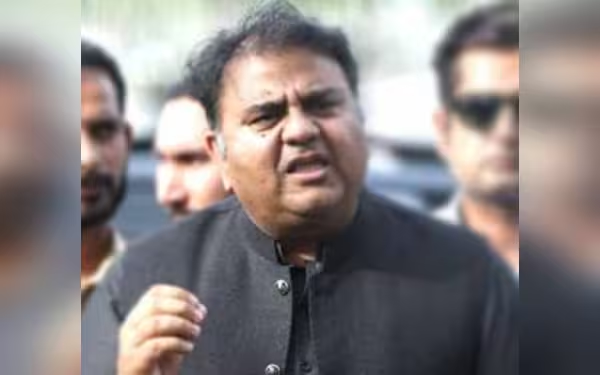Saturday, November 16, 2024 11:55 PM
Fawad Chaudhary Apologizes to ECP in Contempt Case
- Fawad Chaudhary apologizes to ECP for contempt remarks.
- ECP adjourns hearing until December 10 for further examination.
- Political accountability and respect for institutions emphasized.
 Image Credits: nation_pk
Image Credits: nation_pkFawad Chaudhary apologizes to the ECP in a contempt case, highlighting political tensions and accountability in Pakistan.
In a significant development, former Federal Minister Fawad Chaudhary has tendered an apology to the Election Commission of Pakistan (ECP) following allegations of making contemptuous remarks during a media interaction on January 24, 2023. This incident has drawn considerable attention, as it highlights the ongoing tensions between political figures and regulatory bodies in Pakistan.
The ECP, which is responsible for overseeing fair elections in the country, took a firm stance against Chaudhary's comments. A three-member bench, led by Chief Election Commissioner (CEC) Sikandar Sultan Raja, convened to address the contempt case against the former Information Minister. During the proceedings, Chaudhary expressed that he had previously apologized in two separate cases but was still facing charges in the Anti-Terrorism Court (ATC). This situation raises questions about the implications of political discourse and accountability in Pakistan.
In response to Chaudhary's apology, the CEC requested a written explanation from him, emphasizing the importance of clarity in such matters. Chaudhary contended that offering an apology should suffice to resolve the issue of contempt. However, the ECP's Balochistan member countered this argument, stating, "If issues are resolved in this manner, contempt will continue to occur." This exchange underscores the complexities involved in maintaining respect for institutions while navigating the political landscape.
The Election Commission ultimately decided to adjourn the hearing of the contempt case against Fawad Chaudhary until December 10. This delay allows for further examination of the circumstances surrounding the case and the broader implications for political accountability in Pakistan.
As this situation unfolds, it serves as a reminder of the delicate balance between freedom of speech and the need for respect towards regulatory bodies. The outcome of this case may set a precedent for how similar issues are handled in the future, potentially influencing the behavior of public figures in their interactions with the ECP and other institutions. It is crucial for all stakeholders to recognize the importance of constructive dialogue and mutual respect in fostering a healthy democratic environment.













